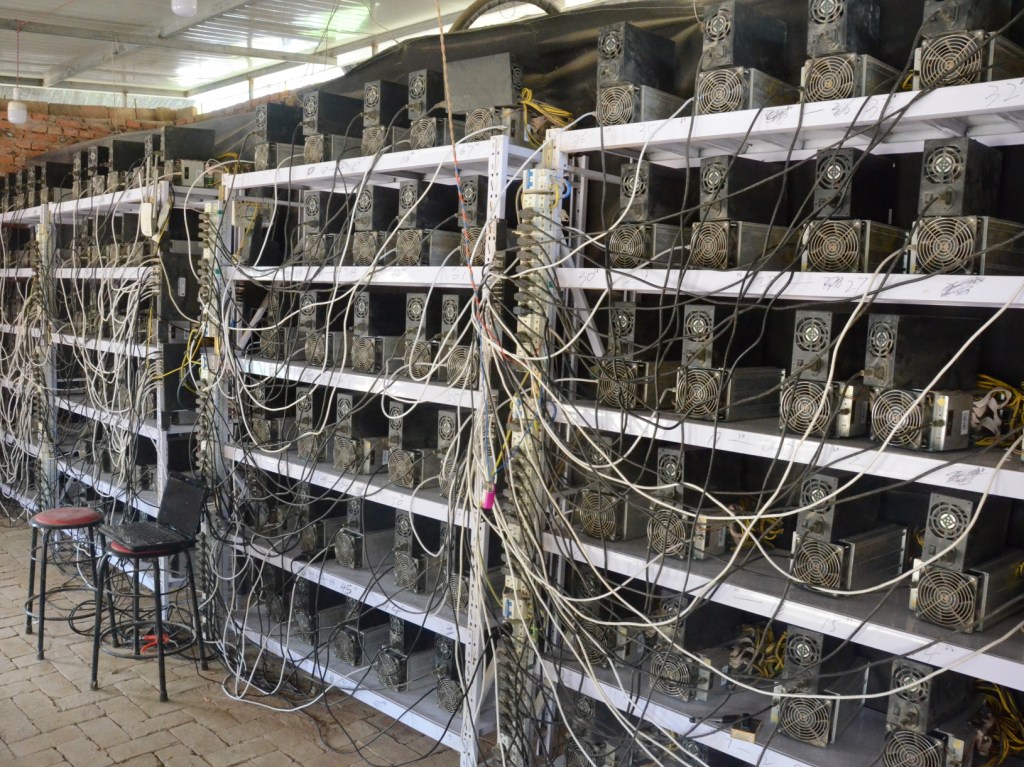When China banned cryptocurrency mining and trading, many saw it as putting an end to a burgeoning industry in the world’s second-largest economy. As it turned out, the country’s crypto investors, developers and hobbyists continue to play a critical role in building the backbone and applications of web3.
The Merge, the much-anticipated network update on Ethereum that’s slated to unfold this week, could provide a new way for China’s crypto enthusiasts to participate in the blockchain economy two years after the country began phasing out the lucrative crypto mining industry.
While crypto mining, the process that verifies and adds new transactions to the blockchain using the proof-of-work method, is costly to join and prone to regulatory clampdown, crypto staking, enabled by the Merge, offers enhanced censorship resistance thanks to its low barriers to entry both in terms of cost and the computing power required.
More discreet
The Merge is expected to address one of the biggest criticisms against cryptocurrency — its environmental impact. For China specifically, the transition will also make it harder for regulators to trace participants in the Ethereum network, which has a market cap of over $200 billion as of writing.
Major blockchains like Bitcoin and Ethereum have been using what’s called the proof-of-work consensus method to validate transactions, where computer servers — or miners — race to solve cryptographic puzzles by consuming massive amounts of power.
Before China banned crypto mining, the country accounted for as much as two-thirds of Bitcoin’s worldwide hash power, the energy consumed to carry out proof-of-work.
But Beijing saw the novel sector as a drag on its economy. In 2019, China added crypto mining to a list of industries to be “eliminated” because they “lacked safe production conditions, seriously wasted resources, polluted the environment,” among other issues. Since then regulators have launched a number of crackdowns on mining, but the industry recently saw a rebound in hash rate after laying low for several months.
It won’t be surprising to see local governments loosening their grip a little as time passes. Crypto mines are often located in backward and landlocked areas of China where there isn’t much economic development for tax revenues otherwise.
But after the Merge, the amount of energy it takes to validate Ethereum transactions will be “indistinguishable”, said Daniel Dizon, co-founder and CEO of Swell Network, an Ethereum staking protocol.
Ethereum will switch to a so-called proof-of-stake mechanism. Servers compete by “staking” their tokens as collateral in the network in order to approve transactions, which is estimated to reduce the blockchain’s power consumption by 99%.
“All you need is basically fairly low computer power, like a computer at home, and the asset itself because it’s proof of the asset that you put at stake,” said Dizon.
The power needed to operate a “node” can be as lightweight as running a Raspberry Pi, the microcomputer originally designed to teach basic computer science in developing countries, Dizon added.
The switch means regulators can no longer detect Ethereum node operators by tracking abnormally high electricity consumption. Proof-of-work, on the other hand, normally takes place at mining farms full of rigs, the set of hardware and processors assembled for crypto mining.
“[A mining facility] is a big place that’s hot and noisy and uses up a lot of energy. It’s kind of hard to miss, right?” said a long-time crypto miner from Singapore who uses the nickname James.
More decentralized
Aside from its environmental impact, crypto mining also incurs exorbitant upfront investments in rigs that could easily cost hundreds of thousands of dollars. Proof-of-stake, in comparison, allows anyone with the tokens to start staking right away.
Running a node is one way to join the staking economy, but to be a node operator, one needs to not only have a good dose of technical competency but also own at least 32 ETH, which, as of writing, amounts to $55,648.
That’s why many ETH holders delegate third parties to stake their assets. Centralized crypto exchanges such as Binance and Coinbase allow users to put down any amount by pooling together others’ tokens. But such platforms have mostly left China and removed Chinese users following Beijing’s crackdown. That means if one holds a Chinese passport, they won’t pass the know-your-customer or KYC requirement on a centralized platform that fully abides by Chinese law.
Users who are more crypto-savvy could opt for decentralized protocols, which use algorithms to facilitate peer-to-peer transactions rather than relying on a centralized intermediary, allowing for a higher degree of anonymity. Decentralized options often enable liquid staking, meaning users can access their funds anytime and avoid the custodial risks associated with centralized platforms.
For the technically proficient, it’s possible to operate nodes from China, though the country’s intricate censorship machine could add uncertainties. Nodes need a “good internet connection” to talk to their nearby peers to carry out the validation process, explained Lecky Lao, co-founder and CTO of Swell. But nodes in China could be on a virtual private network or VPN, which is used to circumvent the Great Firewall by masking their true IP address, making it tricky for nodes to know where exactly their peers are.
Despite these obstacles, China’s crypto users are already jumping on the staking bandwagon. While it’s tricky to put a firm number down, Dizon reckoned a “meaningful” percentage of ETH is held and managed in China, with an upswing in capital inflows into the staking economy expected after the Merge.
“The issue of geography, especially in the context of a permissionless and decentralized network in cyberspace which is effectively what Ethereum is, slightly complicates things when discussing whether assets are truly held or staked ultimately within a specific ‘meatspace’ boundary, i.e. a certain jurisdiction, be it China or otherwise,” the founder added.
Despite crypto ban, China’s tech talent rides the global web3 wave































Comment